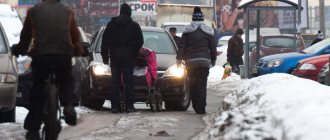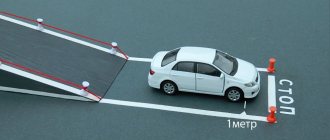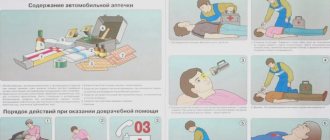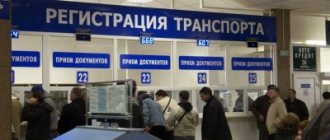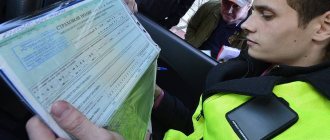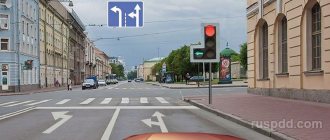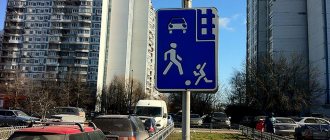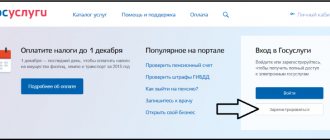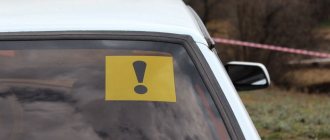The legislative framework
P. 2.1. The traffic rules state the responsibilities of motorists.
So, clause 2.1.1. The traffic rules establish one of many responsibilities - to have available and hand over a driver’s license or temporary permit upon the legal request of a traffic inspector.
For failure to provide driving license at the request of an inspector, the motorist will face administrative liability, depending on the type of violation.
Fortunately for many, current legislation does not provide for criminal penalties for leaving your license at home or for driving with no license at all. Accordingly, the legislative framework consists only of the provisions of the Code of Administrative Offenses (hereinafter referred to as the Code).
Rights may be missing for several reasons:
- staying at home;
- Absence at all (the citizen did not study at a driving school and did not pass qualifying exams);
- deprivation.
Of all the above violations, the least serious is leaving the VA at home. Penalties for this offense are regulated by Part 2 of Art. 12.3.
What happens if you hand over the steering wheel to a person without a license or deprived of a license{q}
A driver's license is revoked in case of serious violation of traffic rules (drunkenness, leaving the scene of an accident, etc.). For the state, a “disenfranchised” driver is worse than a citizen who does not have a driver’s license at all. After all, if the latter’s level of training is simply not clear, the motorist who has already been deprived of his license has proven in practice his “unsuitability”.
The fine for persons driving while deprived of their license is the most serious of the entire “fine for driving without a license” section - 30,000 rubles or 15 days of administrative arrest.
The penalty for transferring the right to drive a vehicle to a person without a license or to a citizen deprived of a driver’s license is severe - a fine of 30,000 rubles. True, there is a nuance. Article 12.7 of the Code of Administrative Offenses of the Russian Federation, Part 3 contains the word “knowingly”.
In other words, a fine of 30,000 rubles for handing over the steering wheel to a “bad guy” only applies when you are sure that the person does not have a license. In addition, the traffic police officer must somehow prove this confidence. In practice, this usually does not happen, and a fine for handing over the steering wheel to a person without a license is issued extremely rarely.
Let's add. In extreme cases, when it suddenly turns out that a friend does not have a driver’s license, the owner of the car writes a statement about the theft, thereby excluding himself from the attack of the article for voluntarily transferring the “right to drive” to a dubious person.
The amount of the fine for driving without a license if you forgot it at home in 2020
Part 2 art. 12.3. establishes liability for the following violations:
- lack of documents confirming the right to drive a car;
- not having a car insurance policy;
- failure to have a travel document or license card with you in cases where, according to the law, their presence is required.
The key word is “with you,” that is, the above violations form the offense if the documents were forgotten or left somewhere, but at the same time they actually exist and are valid (not expired).
Specified in Part 2 of Art. 12.3. The norm regulates uniform measures of responsibility for the absence of a driver's license, a motor vehicle policy, a travel document or a license card:
- warning;
- or a fine of 500 rubles.
Please note that Art. 12.3. does not provide for a progressive model of imposition of punishment.
This means that no matter how many times a motorist is “caught” for driving with a forgotten license, the responsibility will be the same each time - a warning or a fine of 500 rubles.
Who reviews cases of such violations?
Based on the norms of Part 1 of Art. 23.3. Code, such cases are authorized to be considered by the police.
By virtue of clause 5 and clause 6 of part 2 of the same article, decisions (hereinafter also referred to as orders) regarding such violations can be made by:
- Head of the State Traffic Inspectorate;
- his deputy;
- commander of a separate regiment (company, battalion);
- traffic police officers with a special rank.
Peculiarities of imposing punishment in the form of a warning
In some cases, the motorist may be given a warning. This is the “lightest” type of responsibility.
By virtue of Part 1 of Art. 3.4. Code, a warning is issued exclusively in writing and cannot be oral. As a punishment, it is applied only for first-time offenses. Therefore, if the driver is repeatedly “caught” under Part 2 of Art. 12.3., most likely, a fine will be issued.
What consequences can driving without a license have?
The fine for lack of rights is 500 rubles, but if there is no insurance policy, then an additional 500 rubles will be charged.
What is the punishment for the driver not having a compulsory motor liability insurance policy {q} Read the link.
If all the documents are missing, which is due to the fact that drivers keep all the papers in one place, then a significant fine increases, but the maximum it can be 1 thousand rubles.
Important! A fine can be imposed an unlimited number of times, so if a driver is stopped several times in one day, several reports may be drawn up, so it is advisable to immediately return home for documents if they are missing.
When stopping a driver, the traffic police officer takes certain actions:
- since all the documents are missing, the inspector may demand the evacuation of the car, but in such a situation the car owner must indicate in the protocol that the reason for the lack of a license is that he simply forgot them;
- It is recommended to write an application in which the car owner requests to leave the car next to the inspector, after which he brings the documents to the traffic police officer within two hours.
Important! Often, traffic police officers meet drivers halfway and give them the opportunity to bring their license from home, so you should not speak sharply to the inspector or be rude to him.
A protocol must be drawn up to guarantee the absence of bribery.
Is it possible to prevent a car from being sent to the impound lot?
If the car is towed, the owner will have to spend time and money to return the car. Previously, there was a law obliging citizens to pay for the stay of their car in a special parking lot. In different regions, the amount of the fee was set differently, so the faster the driver went through the registration procedure, the cheaper it cost him.
To pick up your car, you needed to prepare a copy of the protocol issued by the inspector, pick up your driver's license and visit the traffic police department. All these papers will need to be presented to the inspector. After paying the fine, you will be able to obtain the appropriate permission to release the car from the department. Tow truck and parking services are usually paid locally.
Today there is no need to pay the impound lot immediately. Violators are given 60 days from the date of receipt of the receipt to pay the required amount. Immediately after receiving the car, you should carefully study the evacuation protocol, and in the act of transferring the vehicle to the owner, indicate the presence of problems, chips, scratches and other defects.
Do they take you to the impound lot?
The articles of the Code, which provide for offenses for which the car is driven to a penalty parking lot, are given in Part 1 of Art. 27.13.
This part states that the detention of a vehicle is used when committing an offense regulated only in Part 1 of Art. 12.3., that is, when driving a car, if the STS is forgotten at home.
Thus, if a motorist does not have a driver’s license or insurance policy, the car will not be towed.
But if there is no license at all, or the driver was previously deprived of it on the basis of a court verdict, the vehicle is subject to evacuation in accordance with the procedure established by Art. 27.13., that is, first a detention protocol is drawn up and signed, after which the car is actually towed away.
The driver bears all costs associated with transportation and storage of the vehicle in a special parking lot in accordance with Part 11 of Art. 27.13.
Can a vehicle be detained if you don’t have a driver’s license with you?
In the event of such a violation, the thought will spin in your head about what else the police can do if they stop you on the road and you don’t show them your license. In fact, even if these rights are not shown, this does not in any way restrict the motorist from further movement. Since the detention of a vehicle, that is, the restriction of movement on public roads, does not apply in the case of lack of a license in hand. This will be more of a problem for traffic police inspectors, who will probably be able to check the owner, restrictions and fines using the PTS... And I will say again that restrictions in the form of detention in this case, if the license was simply forgotten at home, is unacceptable!
How to pay
If the traffic police inspector decides to issue a warning, the warning is executed by handing the driver a copy of the order. No other actions will be required (Article 32.1 of the Code).
But if the traffic policeman decides to punish the motorist with a fine, it is necessary to make payment within the time limits established by law, namely:
| until 60 days have passed since the order entered into legal force | if the motorist does not intend to appeal or for other reasons |
| until 20 days have passed after the date of execution of the order | if the driver wants to receive a 50 percent discount on payment, that is, pay not 500, but 250 |
An offense under Part 2 of Art. 12.3., is not included in the list of exceptions specified in Part 1.3. Art. 32.2., so the 50% discount applies.
Part 3 art. 32.2. indicates where or to whom payment can be made:
- in a credit institution;
- a banking agent or subagent working in accordance with the norms of 161-FZ “On National...”;
- a paying agent working in accordance with 103-FZ “On Acceptance Activities...”;
- to the federal postal service (Russian Post).
In simple terms, payment can be made:
- through the Tinkoff Fines service (website and mobile application);
- to Sberbank Online (Internet bank or mobile application);
- Yandex. Fines (website and mobile application);
- through State Services;
- by non-cash transfer through bank cash desks using the details of the territorial division of the State Traffic Safety Inspectorate.
Note that many services offer not only non-cash payment of fines, but also their verification using the driver’s license number or registration certificate.
The verification option is available in all 4 services:
- Sberbank Online;
- Public services;
- Yandex. Fines;
- Tinkoff Fines.
Payment can be made:
- immediately after finding unpaid fines;
- or without searching for them, using the resolution number (UIN).
All 4 of these services provide the ability to pay by order number. You can find the UIN on the form itself, usually at the top of the document.
How is the election of the chairman of the house carried out? {q}
The chairman of the house can only be appointed as a result of a vote of the owners of residential and non-residential premises of an apartment building. This can happen by:
- voting in person (at a general meeting);
- absentee (filling out voting sheets).
For the elections to be recognized as valid, the participation of at least 2/3 of the owners is necessary. Tenants are not entitled to participate in voting.
The chairman is elected only from among the owners of apartments in the building. For which it is enough for him to secure at least half the votes. The term of office may be determined individually with the right to extend it by re-election for the next term.
Rules for holding a general meeting of owners sample minutes
The election and re-election of the chairman of the apartment building takes place during a regular or extraordinary meeting of residents. Each meeting must be recorded.
The protocol will become a document confirming the appointment, as well as establishing the term of office, salary level and list of benefits. At the end of the specified period, the powers of the “house manager” are extended or another is re-elected, usually for 2 years.
Power of attorney
The powers of the owners' representative must be confirmed by an appropriate power of attorney issued by the owners of the premises in the apartment building themselves. This is mandatory if the chairman of the board has the authority to sign management agreements on their behalf. Also the civil code in Art. 182 regulates issues of representation of one citizen on behalf of another (or group of persons). It occurs only on the basis of a power of attorney.
If the owners do not give the “house manager” the authority to conclude transactions, it is not necessary to issue a power of attorney to him.
Is it possible to challenge
Chapter 30 of the Code is entirely devoted to the procedure for appealing decisions.
Persons who can appeal the decision are indicated in Art. 25.1. - Art. 25.5.1.:
- citizen held accountable;
- his legal representative;
- defender of the offender (if available).
Based on clause 3, part 1, art. 30.1., orders issued by officials (and the inspector is an official) are appealed to a higher government agency, a superior person or to a district court.
The applicant has the right to file a complaint with several persons and/or structures at once - for example, both to a superior person and to a higher government agency. In this case, the complaint will be immediately considered by the judicial authority.
Part 1 art. 30.2. The Code indicates the right of a citizen to file a complaint directly with the traffic police inspector who issued the decision. In this case, he is obliged to transfer it (the complaint) and all related documents to a higher authority within 3 days.
By virtue of Part 5 of Art. 30.2., there is no need to pay a fee for filing and consideration of a complaint.
Please note that, according to the norms of Part 1 of Art. 30.3., an appeal is possible until 10 days have elapsed from the date of receipt of a photocopy of the order. And the complaint itself will be considered within the time limits specified in Art. 30.5. Code, namely:
| if considered by the court | within 2 months |
| if considered by a superior person or higher authority | within 10 days |
So, if the license was forgotten at home, the motorist will be punished in the form of a fine of 500 rubles or a written warning. The type of punishment is chosen by the inspector himself on the spot. If you leave your vehicle at home, your car will not be towed in 2020.
The driver has the right to appeal within 10 days from the date of receipt of a photocopy of the decision.
What to do?
Of course, no inspector will take your word for it that you forgot your license at home. You will have to wait until your passport is checked against the database. This procedure may take a long time.
If you don’t have your passport with you, then the traffic police officers have every right to detain you for 2-3 hours to find out your identity.
The best option is to call a friend or relative. Have them bring your driver's license to the post where you were stopped.
In any case, conflict must be avoided. It is better to resolve the situation peacefully. It is not worth offering a bribe to a traffic police inspector.
In such situations, proceed as follows:
- present documents for the car;
- comply with requests from traffic police officers;
- tell us about the situation;
- offer to wait until they bring your driver’s license;
- call your friends;
- try to negotiate with a traffic police representative about going to get your license yourself.
It’s much worse if you don’t have a driver’s license at all. You will have to shell out 30 thousand rubles.
If you have already been fined, it is possible that during a subsequent inspection you will have to fork out money again.
Video: Fine for driving without a license
Attention!
- Due to frequent changes in legislation, information sometimes becomes outdated faster than we can update it on the website.
- All cases are very individual and depend on many factors. Basic information does not guarantee a solution to your specific problems.
That's why FREE expert consultants work for you around the clock!
- via the form (below), or via online chat
- Call the hotline:
APPLICATIONS AND CALLS ARE ACCEPTED 24/7 and 7 days a week.
Is it possible to avoid a fine and how to do it?
The fine can be avoided in two cases. If the inspector confines himself to a warning, deeming the violation unintentional and not worthy of punishment. You can try to persuade the inspector, citing the accidental nature of what happened, that this happened for the first time, and there was no intent. If the inspector does not agree, then defend the incompetence of the fine in the courts.
The fine comes into force and is legal only with the consent of the driver, which is confirmed by the signature in the protocol. In the protocol you should indicate the reason for your disagreement, and petition the court to cancel the illegally imposed penalty. In this case, it is necessary to justify your position and support it with facts.
In a court
Rights and obligations of owners to house and land
Land owners are subject to the rights and obligations of owners of any property.
In accordance with Art. 209 of the Civil Code of the Russian Federation, a citizen can:
- own a plot of land;
- dispose of land;
- use the allotment.
The law provides for a number of restrictions on plots, depending on their purpose.
The rights in relation to the land plot are vested in the owner. This is the person who registered the object in accordance with the law.
Possession, disposal and use of a plot is possible in relation to the allotment:
- with established boundaries (land surveying has been carried out);
- registered in the cadastral register;
- registered in Rosreestr.
The right of ownership arises in the case of:
- privatization;
- purchases;
- exchange;
- receiving as a gift;
- receiving an inheritance.
Expert opinion
Stanislav Evseev
Lawyer. Experience 12 years. Specialization: civil, family, inheritance law.
A feature of the registration of a land plot with a built residential building is the legal requirement for a common owner of the building and land. Therefore, if a citizen has legally built a house, then the land is registered as ownership through Rosreestr without the consent of state authorities.
The object can be either personal or shared ownership. If there are several owners, the rights and obligations apply to all co-owners equally.
